What they don't tell you
Synopsis: The details they don’t tell you on a ’Start beekeeping’ course are almost as important as the things they do teach. By definition these courses tend to be ‘fact heavy’. They omit some of the less tangible, and sometimes less pleasant, aspects of our hobby. These are mine, but all experienced beekeepers will have their own list of what they learnt after the course ended.
Introduction
I’ve only taken one ’Start beekeeping’ course. It was well organised, it got most of the basics right (in retrospect … I obviously no idea at the time 😉 ) and it provided a good foundation for my first season. Like many of these winter courses, it was spread over two months and timed to produce a ‘swarm’ of novice beekeepers when it was almost warm enough to open some hives for the practical sessions.
It was held on weekday evenings and consisted of two 45-60 minute sessions separated by tea and biscuits. The refreshments were an integral and essential part of the course. Biscuits – or, better yet, cake – and tea hugely improve the beekeeping experience.
I’ll return to tea and biscuits in a minute.
The basics included talks on the biology of the honey bee, the beekeeping year, equipment, swarm control, diseases, honey and wax (and a bunch of stuff I’ve forgotten by now). It was therefore probably like most other courses that are being held up and down the country at the moment.
However, good though the course was, there are a bunch of things the course didn’t cover, but perhaps could have.
Here are some of them …
You will spend a lot more than you expect
Beekeeping can be practised relatively inexpensively, but it often isn’t.
The lure of the mail-order catalogue is strong.
The ‘must haves’ are too numerous to mention.
By the time a new beekeeper has bought a hive, a beesuit, some bees, a nuc box, frames, hive tool, smoker and one of those essential combo sugar-duster and frame-brushes (disappointingly no longer sold 🙁 ), there’s probably not a lot of change out of £500 {{1}}.
And it could be a whole lot more. A cedar assembled National hive alone costs almost £500 these days.
At the beginning it makes sense to buy secondhand if you can. As long as the equipment comes from a disease-free source the bees will do just as well in a 30 year old cedar box as one purchased new. Ask around your association if there are beginners from the course last year who decided beekeeping wasn’t for them …
… and if you have spare equipment, offer it to a new beekeeper rather than finding a corner of the shed to hide it in for another year or two. When I left the Midlands {{2}} I gave away lots of homemade {{3}} nuc boxes and other kit, much of which was perfectly serviceable and is still in use now.
And remember that although you often buy beekeeping equipment flat-packed, you can’t store it flat-packed … all those boxes take lots of space and you’re going to need a bigger shed.
Remember also that the ’speculate to accumulate’ justification i.e you need more supers/nuc boxes or whatever to make money from your bees, can be easily undermined by lousy swarm control or a cool, wet summer.
It might work for a year or two … but I can guarantee it does not work for a decade 😉
Observe, think, have a cuppa, then do …
There are few things in beekeeping that need immediate attention.
’Act in haste, repent at leisure’ is an aphorism that’s worth remembering.
If {{4}} you’re faced with a problem you don’t understand it’s often a good idea to close up the hive and take some time to think about things.
The classic ’Aargh! panic’ situation for new beekeepers is discovering sealed queen cells in the hive and immediately squidging them all to prevent the imminent loss of a swarm.
What else was in the hive?
Did you see the queen? No … but then you’ve not seen her for weeks, so what’s new?
But you don’t need to see the queen to be reasonably certain that the colony is queenright. All you need to see are eggs. An egg takes three days to hatch after, so if you can see eggs you can be certain that there was a queen present within the last 3 days {{5}}.
Did you see eggs? Er, no.
What about developing larvae? You can’t remember?
Of course, the likely scenario is that the queen cells were sealed because the colony has already swarmed. There are no eggs or young larvae (or possibly any larvae) because the old queen vamoosed with the swarm several days ago.
So, by acting in haste – and crushing all those sealed queen cells – the colony is left with no developing queens and no larvae from which to produce a new queen.
In fact, the colony is now terminally queenless 🙁
Far better – on discovering the queen cells – to have a good look through the rest of the hive, close it up and have a think and a cuppa while you work out the correct course of action.
Then act …
You will make mistakes
“We learn from failure, not from success!” {{6}}.
I’ve made a lot of mistakes when beekeeping.
I’ve had a lot of failures.
But, by thinking about where I went wrong, I’ve often learnt how to avoid doing it again {{7}}.
Probably my first real clanger was inadvertently and unknowingly crushing the queen on my second or third ever inspection.
Oops.
But it gets worse.
At the next inspection, a week later, I (unsurprisingly) discovered a load of queen cells.
Uh oh! Swarming already?
If you re-read the section above I describe exactly how I dealt with that little conundrum 😉
I knocked back all the queen cells and only retrospectively wondered why there were no eggs or larvae in the hive.
It was a useful learning experience.
Beekeeping looks quite easy, but there’s a lot to learn and the bees don’t always do quite what’s expected of them. A combination of good observation, good record keeping and retrospective thought should mean that the mistakes you will inevitably make aren’t wasted opportunities to learn how to avoid a repeat performance.
I don’t think I’ve ever left a colony terminally queenless in the same way again, but I’ve had ample other ’learning opportunities’ in subsequent years.
Perhaps fewer each year, but enough to keep me entertained … and educated.
Don’t underestimate the benefits of mentoring
Most well organised and responsible associations will ‘buddy up’ trainee beekeepers with a more experienced mentor. The idea is that the mentor is available to provide help and advice as and when needed. When it works well it’s a great arrangement.
You might get your first nuc from your mentor, and you may get some help with your first couple of hive inspections. If things go wrong, and they will (see above), your mentor should be able to provide the advice needed to avoid turning a drama into a crisis.
I wrote about ’Better mentoring’ several years ago. It’s a post that could probably do with an update.
However, the real ’benefits of mentoring’ are probably to be gained when you’re the mentor, not the mentee.
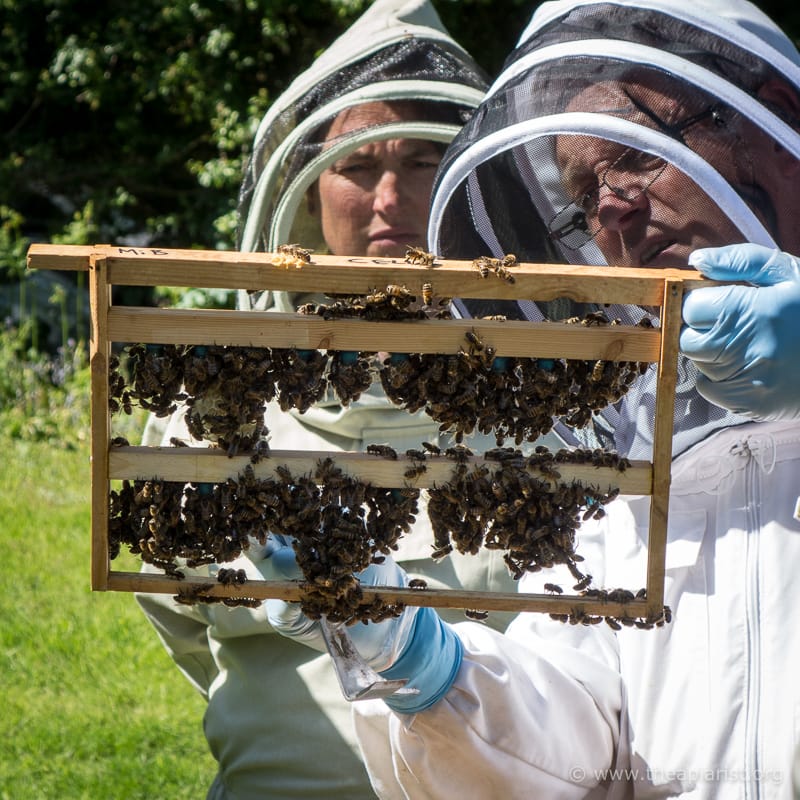
Mentor and mentee
Mentors do not need to be hugely experienced beekeepers. In fact, I’d argue that it’s sometimes better if they only have a season or two of successful beekeeping under their belt.
A very experienced beekeeper probably knows all the answers {{8}}, but the mentee will only properly learn when they’re helped rather than told. In contrast, with one or two (successful) years experience, the mentor knows enough of the the basics to avoid disasters, but is more likely to do the ‘thinking out loud’ and work through the problem with the mentee.
And, while doing this ‘thinking out loud’ the mentor also learns.
Did I already say that tea and cake helps? It does.
I learnt more about beekeeping when mentoring others than when being mentored {{9}}.
Lots more.
If and when you get the opportunity to mentor a new beekeeper grab it. You might feel you don’t know it all (you don’t), but you probably know enough. And, by being a mentor, you’ll get to know a whole lot more.
It can be hard physical work
Unless you’re young and fit and strong, and even if you’re young and fit and strong, beekeeping will be tough on your back. Hives are heavy, but moved relatively infrequently. Supers can be very heavy and – with luck – you’ll be lifting a lot once or twice a season.
And it’s not just your back.
Frames, particularly frames full of stores, are heavy. Unless I’m careful I get aches and pains in my fingers from the strain of handling lots of frames during inspections {{10}}.
I don’t remember any of this being discussed in my ’Start beekeeping’ course.
I’ve had one or two seasons spoilt by a bad back. Most recently it was due to tripping over something {{11}} in long grass when carrying three full supers. This is definitely not recommended. The bees were upset and I had back pains until the end of the season.
Learn how to lift properly. Make sure you have clear space around your feet and somewhere suitable to place the moved boxes. All entirely obvious and very much a case of do as I say, don’t do as I do.
But the physical nature of beekeeping doesn’t stop with lifting.
Most beesuits provide good protection against bees, but only by being made of rather thick material. Therefore, on a hot day, they can get very warm indeed. The veil reduces air movement around your head, so the natural cooling from perspiration isn’t very effective.
Admittedly they’re not needed a lot in Scotland, but these gel-filled, water-soaked neck wraps are excellent. They provide cooling for hours at a time. I’ve had mine for about 20 years now and I’m not sure if there’s a UK distributor, though you can get them in Holland.
Or just leave the inspection to a cooler day 😉
You will lose swarms
In about my third season I had about half a dozen colonies. I’d done some splits the year before and had my first tentative go at queen rearing.
I was beginning to really enjoy beekeeping.
Which didn’t mean I necessarily was any good at it, or had much of a clue about what to do 😉
My swarm prevention was poor and my swarm control was hopeless (bordering on non-existent).
At one point in late May or early June I didn’t have a single hive with a laying queen in it. They’d all swarmed.
I had at least learned not to knock back all the queen cells. A small victory.
Queen open mating success is about 75-80% and I think all the hives were eventually queenright. However, I still felt both helpless and hopeless standing in an apiary with 6 hives and no queens.
I think the secret of swarm prevention is to start early … young queens, give them space etc.
I know the secret of swarm control is to use a method you absolutely understand and have total confidence in. Learn why it works, learn the wrinkles. Understand the timing of whatever hive manipulations are needed.
It might be something as simple as making up a nuc with the old queen and letting the colony re-queen itself. Or it might involve a Snelgrove board, a 47 page manual and visits to the apiary every 21 hours for 3 weeks to open and close all those damned doors.
Whatever floats your boat.
Unsurprisingly I use the nucleus method for 90% of my swarm control, and in many years use nothing else.
In my hands it’s idiot proof. It needs to be.
Since you will lose a swarm or two, set out bait hives. If you’re lucky your swarm will take up residence and you can pretend you never lost it in the first place.
If you’re really lucky you’ll notice scout bees checking out your bait hive, realise there’s a colony thinking of swarming nearby, check your own hives and discover an unsealed queen cell.
Keep your veil on to hide that smug smile 😉
Joseph Merrick
One of the skills new beekeepers need to acquire is how to judge the temperament of a colony. Some bees are naturally feisty and, knowing this, you don your beesuit and gloves well in advance {{12}}. Other bees are calm and stay calm whatever abuses are visited upon them. You drop a frame – or a super – they buzz around a little but remain remarkably unfazed.
But most bees are between these extremes. They’re fine until they say ’enough’s enough’.
The first secret of not getting stung is to avoid forcing the bees to become defensive. Don’t crush bees when manipulating frames or replacing queen excluders. It takes a few seconds more to do it gently having brushed/encouraged the bees out of the way. Avoid opening the hive in thundery weather.
But the other secret of not getting stung is being able to judge that the colony is getting riled up. If you realise they’re getting agitated you’ll take extra care.
You might even decide to close up the colony and start again another day.
There’s no shame in a tactical withdrawal …
If they’re really agitated the other thing to take care with is removing your beesuit. I generally don’t react to stings on the hand, forearm, ankle or upper thigh {{13}}, but I react badly when stung on the face.
Stings around the lips, eyes or tongue can be temporarily disfiguring and, for some, dangerous or even life-threatening.
The few really bad stings I’ve received were to the face after removing my veil too soon after inspecting a poorly tempered colony {{14}}.
This is the reason I consider ‘following’ one of the worst possible traits in bees, and something I rigorously exclude when selecting stock for queen rearing (or colonies for requeening).
You will be amazed how good your first honey is
If you get to late August with a strong queenright colony and a frame or three of honey, well done. You’re half way to becoming a beekeeper.
Enjoy the honey. It tastes even better knowing that you worked with the colony to produce it.
You will miraculously develop a wider circle of friends, and long-lost family members will appear wanting to know all about your new hobby.
And test the honey 😉
In your first season just buy 4 oz or 8 oz jars … any larger and there won’t be enough to go round 😉
Get the bees through the winter, healthy, queenright and expanding well, and you’ll have successfully completed your first full year.
Now you’re a beekeeper 🙂
{{1}}: I might be woefully out of date here. I try not to look at the Thorne’s catalogue/website during the winter months in case I purchase things I really don’t need.
{{2}}: Seven years ago.
{{3}}: i.e. rather poorly constructed.
{{4}}: When!
{{5}}: OK, clever clogs at the back … there might be laying workers in a queenless colony. Let’s keep it simple.
{{6}}: Bram Stoker, Dracula.
{{7}}: At least until my forgetfulness erases that particular lesson from the memory banks and I have to learn it all over again.
{{8}}: Or thinks they do, which is worse.
{{9}}: And I learnt a lot when being mentored.
{{10}}: Do any beekeepers use those finger-strengtheners that climbers use?
{{11}}: I’d probably dropped …
{{12}}: Anything more than mildly feisty and they should be requeened as a priority.
{{13}}: Don’t ask.
{{14}}: The disfigurement was debatable, but it hurt like hell and my son called me the Elephant Man for days.
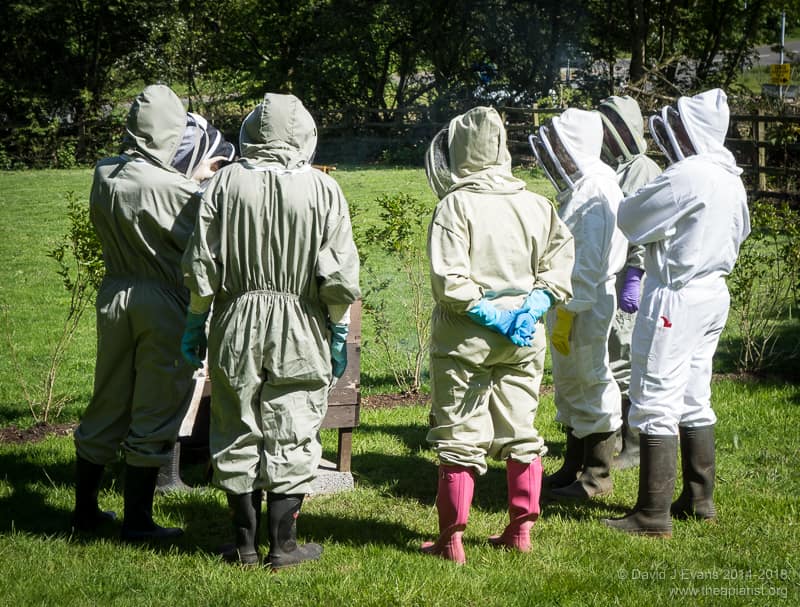
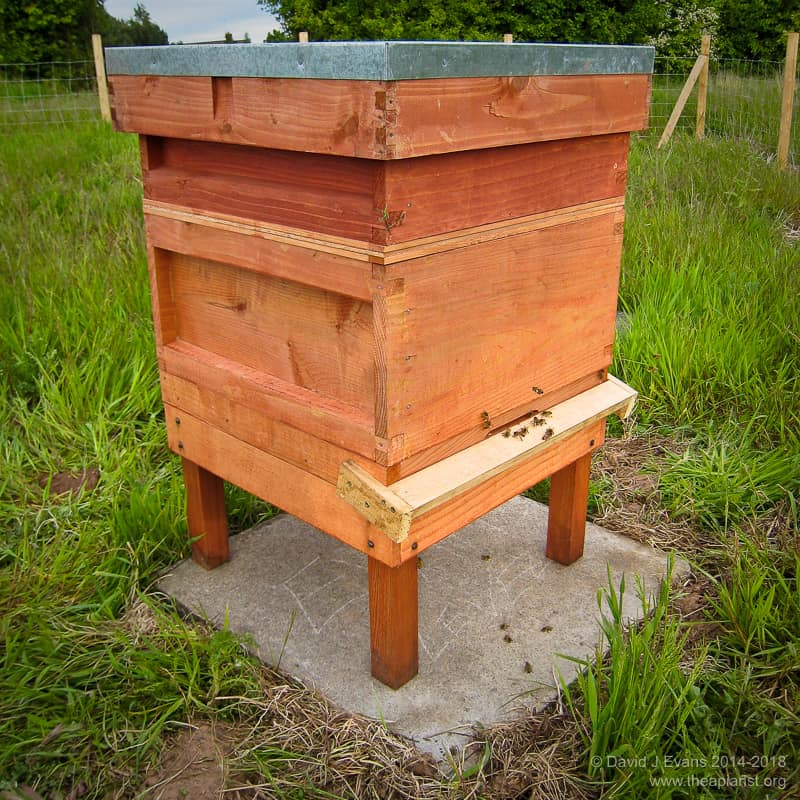
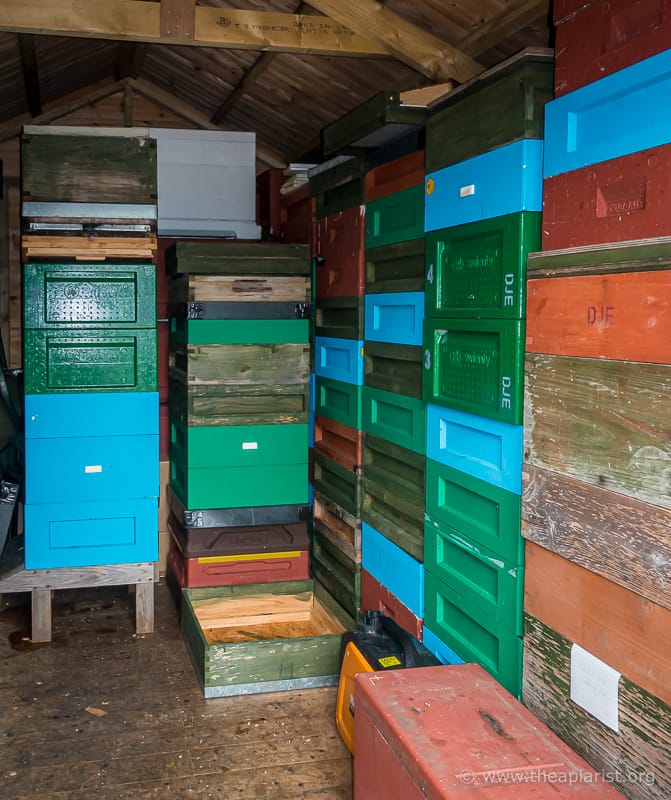
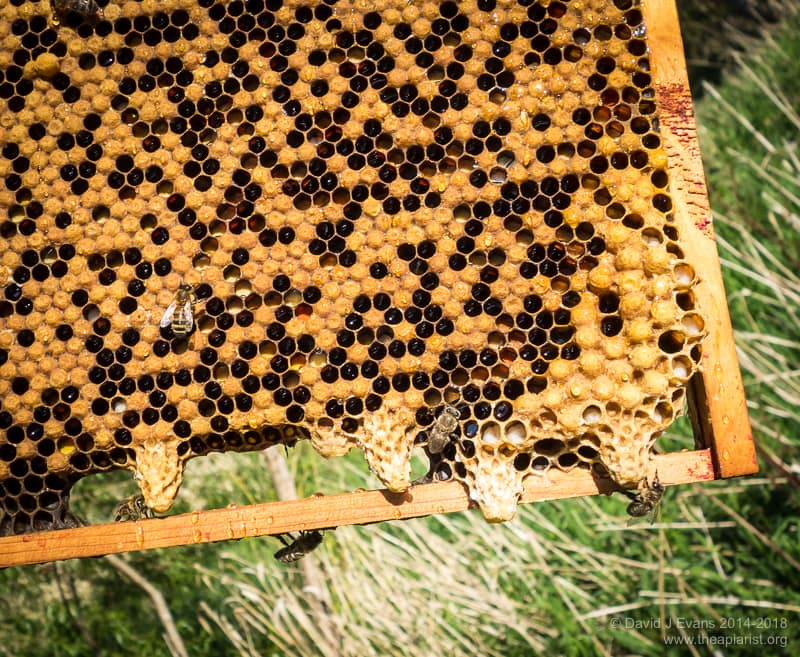

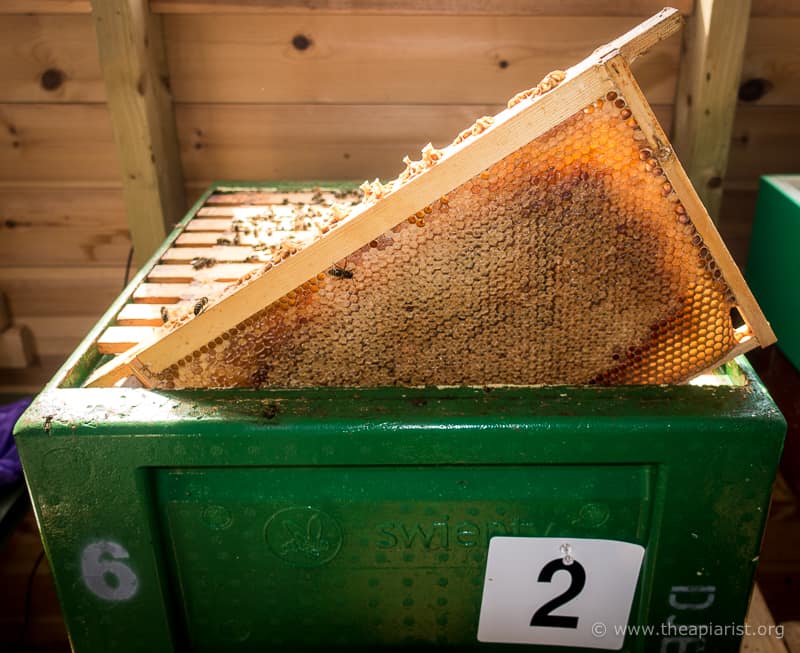
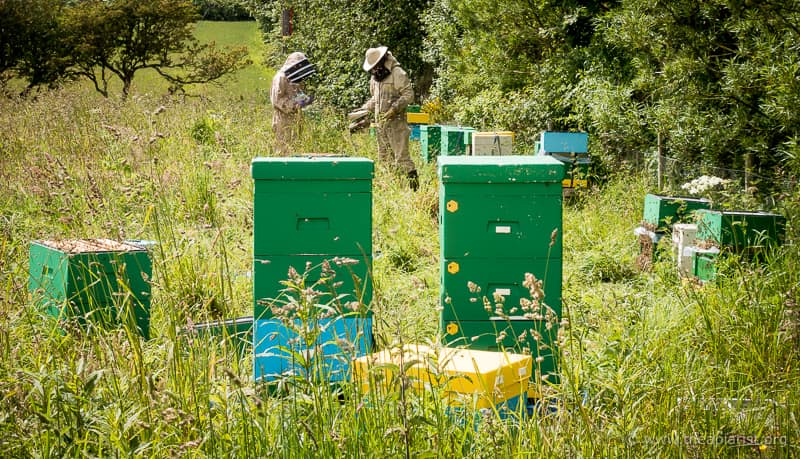
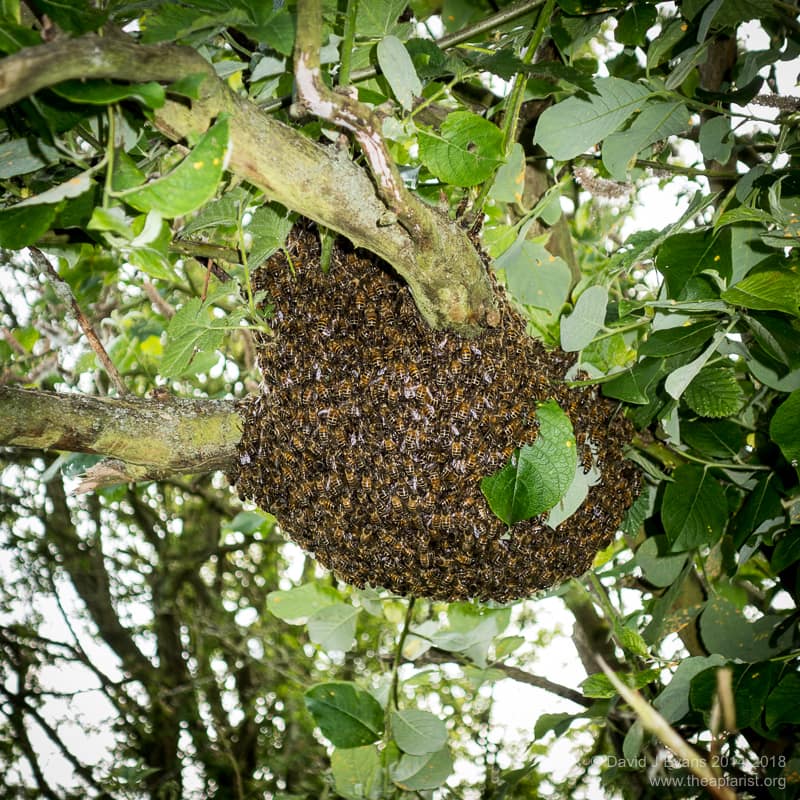

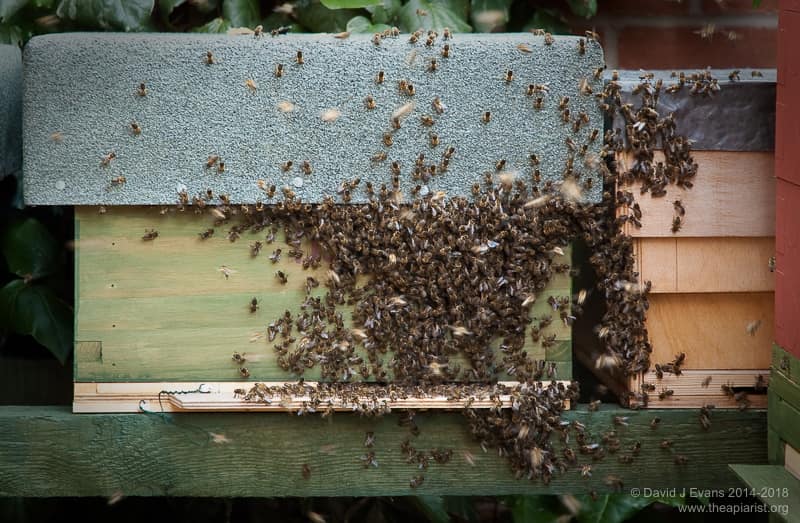
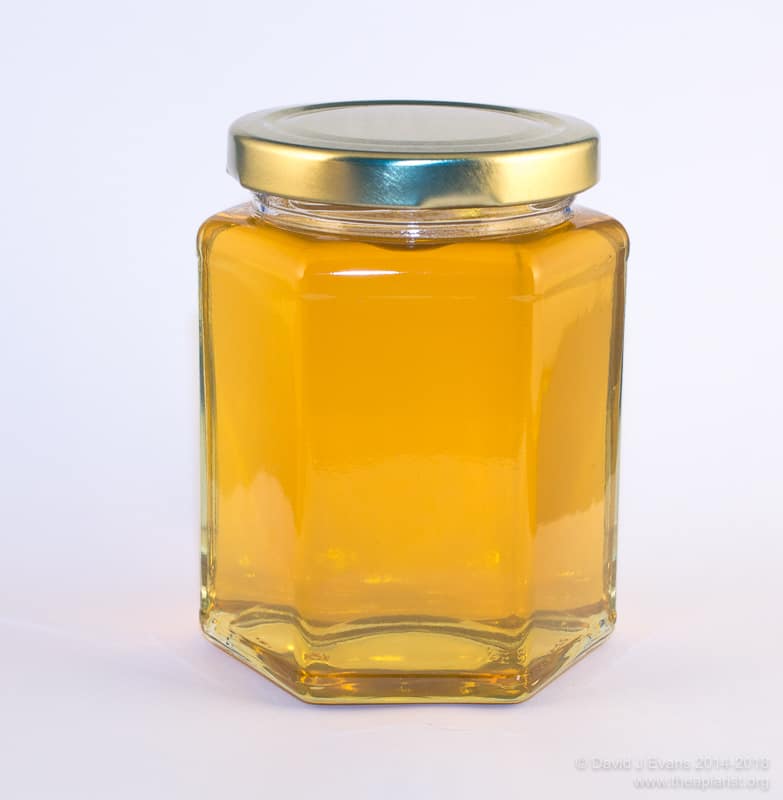
Join the discussion ...